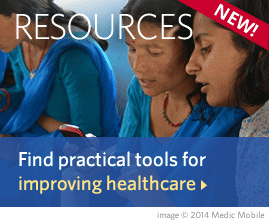Empowering the largest generation of young people with the tools they need to plan their futures is central to achieving both FP2020 goals and the…
Leer más...Mostrando los resultados para: seminario web
A growing body of evidence shows that many women in low- and middle-income countries are not getting the respectful, supportive, high-quality antenatal care (Congreso Nacional Africano) they…
Leer más...Drug susceptibility testing should be offered to all TB-infected people to ensure they are started on appropriate and effective treatment. Molecular tests, such as line…
Leer más...Country leaders across the world have identified universal health coverage (cobertura universal de salud) as a critical component for improved health outcomes as well as for their national…
Leer más...El uso de información confiable procedente de un sistema de información sanitaria bien diseñado es fundamental para la toma de decisiones durante los brotes de enfermedades y para mejorar la eficiencia., fomentar la innovación, y…
Leer más...Laboratory biosafety is critical to protect healthcare workers and to ensure proper diagnostic results. Failures in biosafety occur when risk and sustainability are not included…
Leer más...En 2013, Rwanda’s Ministry of Health established the national health care accreditation program, which guides facilities to define, implement and measure standards that describe the…
Leer más...Por 2030, more people in sub-Saharan Africa will be affected by diseases associated with wealth than those associated with poverty. How can we adapt and…
Leer más...Este seminario web, organizado por los Sistemas para un Mejor Acceso a Productos Farmacéuticos y Servicios, financiados por USAID (Cada hora) El programa aborda cómo el acceso y el uso de datos de calidad…
Leer más...Este seminario web fue organizado por Planificación Familiar 2020 (FP2020). FP2020 lanzó su sexto informe anual de progreso, FP2020: Catalizando la colaboración, en noviembre 12 durante la Internacional…
Leer más...





